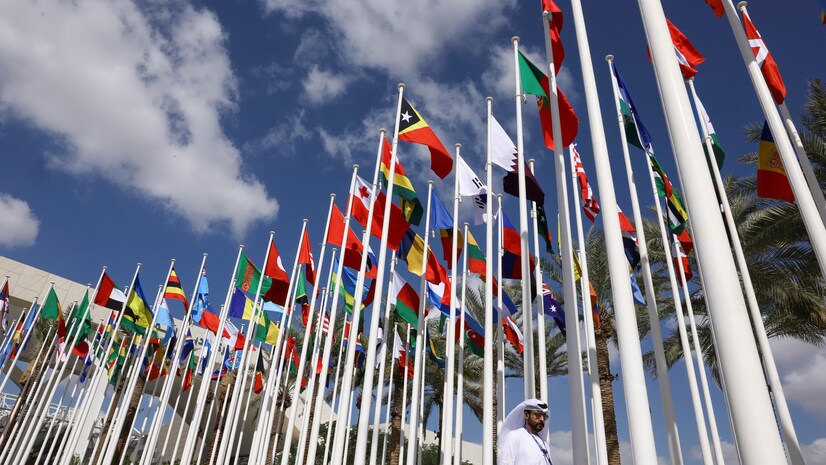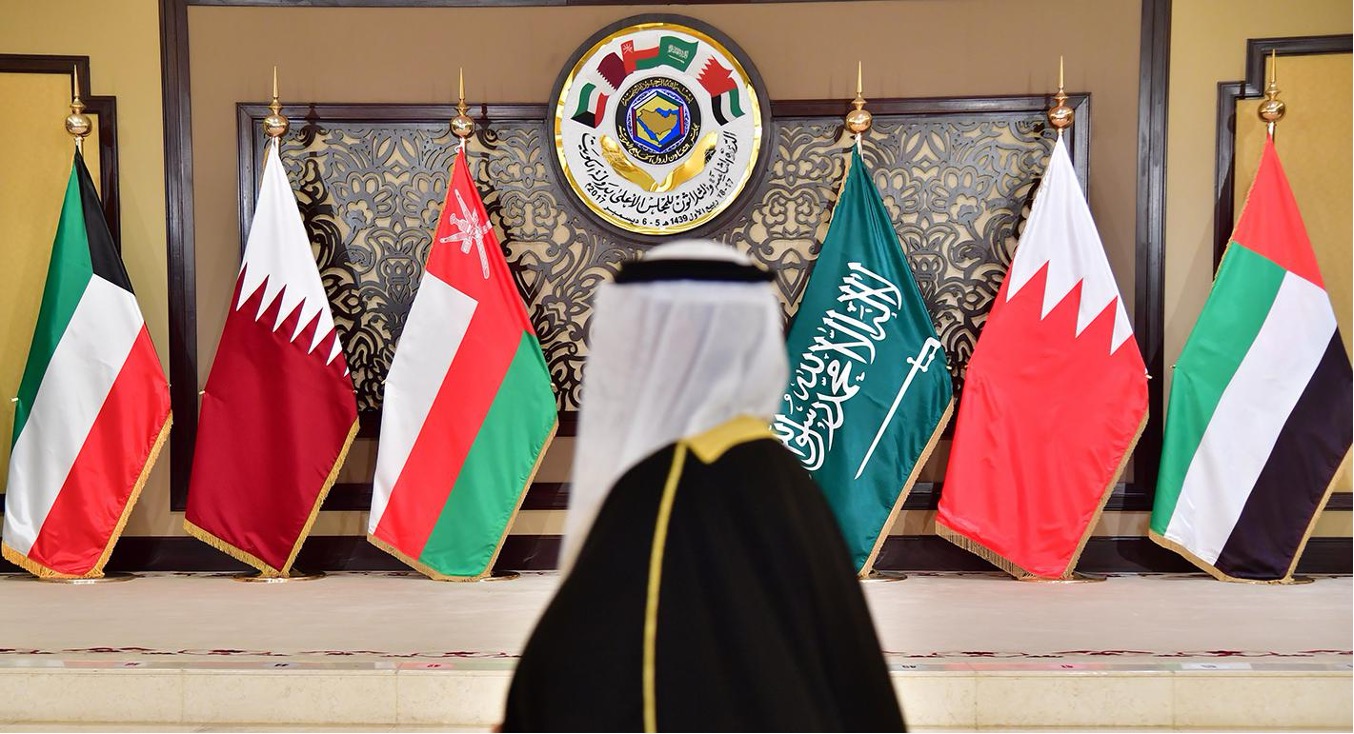In a significant move toward sustainable energy, the Gulf Cooperation Council (GCC) countries have announced a collective investment of $100 billion in renewable energy projects by 2030. This initiative aims to reduce carbon emissions by up to 20%, marking a pivotal shift in the region’s energy strategy. This ambitious plan signals a major commitment by Gulf nations to address climate change while ensuring long-term economic sustainability.
A Unified Vision for Sustainability

The announcement was made during a recent high-level summit on climate change and economic development in the Gulf States. Energy ministers, environmental experts, and industry leaders convened to discuss the region’s approach to reducing carbon footprints while maintaining economic growth. The consensus was clear: immediate and substantial action is required to mitigate environmental risks and ensure economic stability in a post-oil world.
For decades, Gulf nations have relied on fossil fuel exports as their primary source of revenue. However, with global energy markets shifting toward cleaner alternatives, the region faces both a challenge and an opportunity. By investing heavily in renewables, the GCC nations aim to future-proof their economies while positioning themselves as leaders in the global energy transition.
Driving Factors Behind the Investment
The Gulf region faces significant climate-related challenges, including rising temperatures, water scarcity, and the threat of sea-level rise. These environmental issues pose serious risks to infrastructure, public health, and overall quality of life. The economic implications are equally concerning, with projections indicating that climate change could reduce the Gulf’s GDP by up to 5% by 2050.
The financial imperative, coupled with environmental concerns, has galvanized GCC nations to take proactive measures. Additionally, international pressure to comply with carbon reduction targets, particularly under the Paris Agreement, has accelerated the push toward renewables.
Strategic Allocation of Funds
The $100 billion investment will be strategically allocated to various renewable energy sectors to maximize impact and efficiency:
- Solar Energy: Given the region’s abundant sunlight, substantial funds will be directed toward large-scale solar power projects. These projects aim to reduce dependency on oil and gas while significantly cutting carbon emissions.
- Wind Energy: Though less abundant than solar energy, wind power presents an opportunity for diversification. Investment in wind farms will help Gulf nations broaden their renewable energy mix.
- Research and Development: A portion of the funds will support innovation in renewable technologies, including energy storage solutions and advanced solar panel efficiency. By investing in cutting-edge research, Gulf nations hope to drive down costs and improve the sustainability of renewable energy systems.
- Infrastructure Development: Transitioning to renewables requires significant upgrades to existing power grids. Investment in modern infrastructure will ensure that clean energy sources are seamlessly integrated into national energy networks.
Country-Specific Initiatives
Several GCC countries have already embarked on ambitious renewable energy projects:
- Saudi Arabia: The kingdom is spearheading the Sudair Solar PV Project, one of the largest solar power plants in the world. With a capacity of 1.5 gigawatts, this project aligns with Saudi Arabia’s Vision 2030, which aims to generate 70% of the country’s energy from renewable sources by the end of the decade.
- United Arab Emirates: The UAE is aggressively expanding its clean energy capacity through Masdar, its leading renewable energy company. Masdar aims to increase its solar and wind energy output to 100 gigawatts by 2030. Additionally, the Mohammed bin Rashid Al Maktoum Solar Park in Dubai is set to be the largest single-site solar park globally.
- Qatar: Qatar is developing the Al Kharsaah Solar Power Plant, which will have a capacity of 800 megawatts and is expected to meet a significant portion of the country’s energy needs. The country is also investing in carbon capture technologies to further reduce emissions.
- Kuwait and Oman: Both countries have unveiled ambitious renewable energy projects, with Oman aiming to generate 30% of its electricity from renewables by 2030. Kuwait is also investing in large-scale solar power plants to diversify its energy portfolio.
Economic Diversification and Job Creation
Transitioning to renewable energy is not only an environmental imperative but also an economic opportunity. The renewable energy sector is expected to create thousands of jobs across various fields, including construction, engineering, research, and maintenance.
By shifting away from oil dependency, Gulf countries can reduce their vulnerability to fluctuations in global oil prices. The economic diversification resulting from renewable energy investments will strengthen national economies and promote long-term stability.
Global and Regional Implications
The GCC’s commitment to renewable energy sends a strong message to the global community about the importance of collaborative action in addressing climate change. By investing heavily in sustainable energy, Gulf nations are positioning themselves as leaders in the global energy transition. This move is expected to encourage other regions to adopt similar strategies, fostering a worldwide shift toward cleaner energy sources.
Beyond their borders, Gulf nations also have the potential to export clean energy to neighboring countries and beyond. With advancements in energy storage and transmission technologies, the Middle East could become a hub for renewable energy exports in the coming decades.
Challenges and the Path Forward
While the $100 billion investment marks a significant step forward, several challenges remain:
- Technological Adaptation: Integrating renewable energy into existing grids requires advanced technologies and infrastructure upgrades.
- Financial Management: Ensuring the efficient allocation and utilization of funds is crucial for the success of these projects.
- Policy Frameworks: Establishing supportive policies and regulatory frameworks will facilitate the growth of the renewable energy sector.
- Public and Private Sector Collaboration: Strong partnerships between governments and private investors will be essential to achieving ambitious energy transition goals.
Addressing these challenges will require continued collaboration among GCC countries, private sector stakeholders, and the international community.
Conclusion
The Gulf Cooperation Council’s $100 billion investment in renewable energy by 2030 represents a transformative approach to addressing climate change and promoting economic sustainability. By aiming to reduce emissions by 20%, GCC nations are taking a proactive stance in safeguarding their environmental and economic futures. This bold initiative not only benefits the region but also contributes significantly to global efforts in combating climate change.
As the world moves toward a cleaner energy future, the Gulf nations’ commitment to sustainability will play a crucial role in shaping global energy policies. The investments made today will define the energy landscape of tomorrow, ensuring that the Gulf remains a key player in the world’s transition to renewables.
Karachi Faces Influx of Deported Nationals Amidst Legal Crackdown



